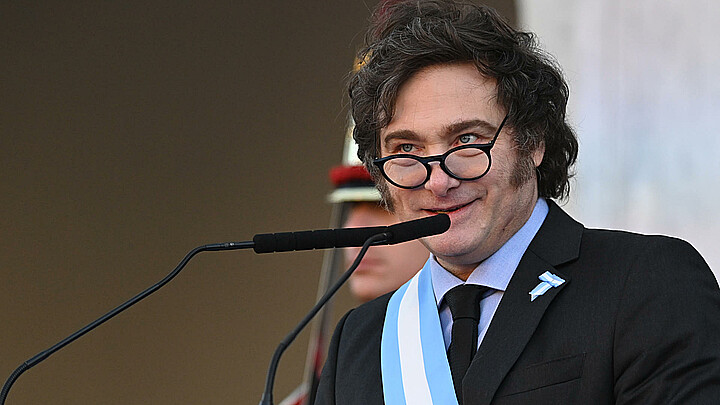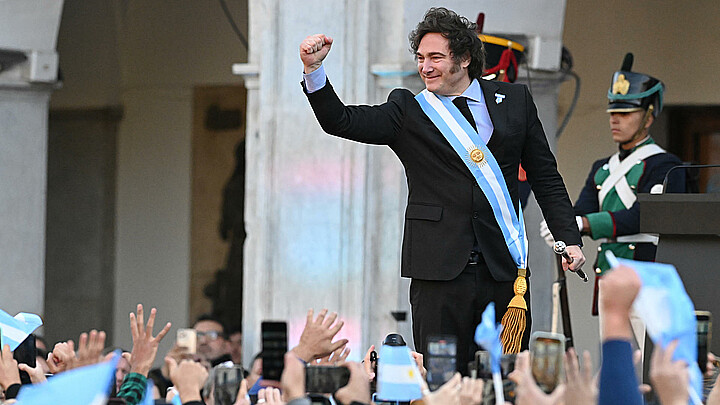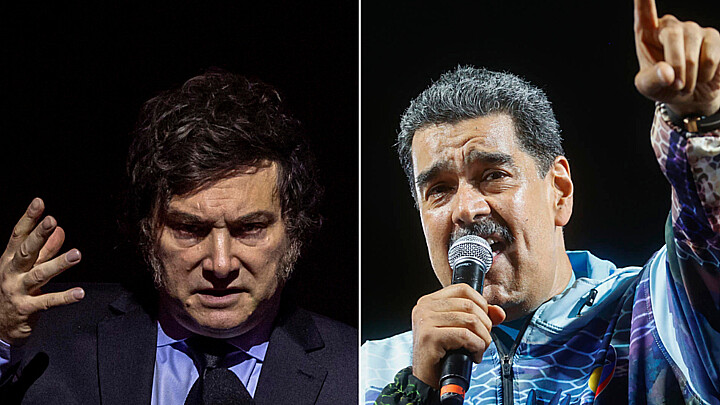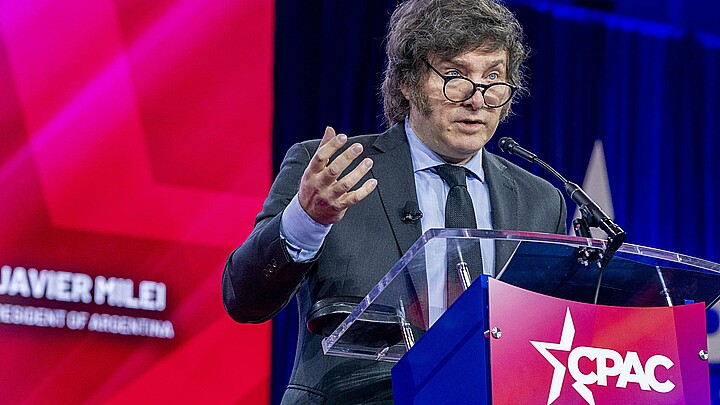Politics
Argentina's high criminal court finds Hezbollah, Iran responsible for Jewish center bombing
Argentina’s Court of Cassation said the notorious 1994 attack, which killed 85 and injured 300 others, was revenge for the South American country’s withdrawal from a potential nuclear partnership with Iran during the 1980s
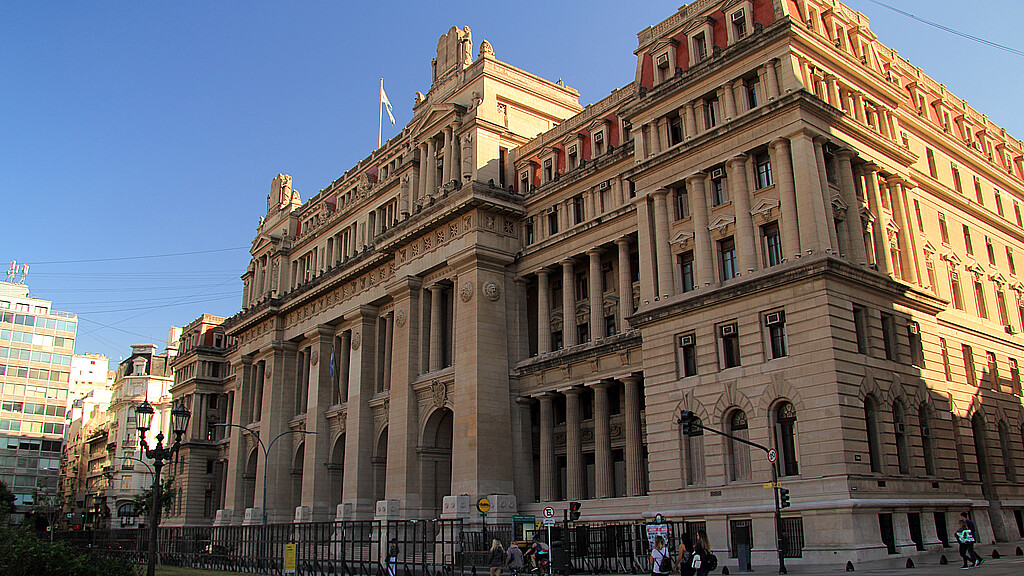
April 17, 2024 8:55am
Updated: April 17, 2024 9:20am
Three decades after the shocking 1994 bombing of a Jewish community center in Buenos Aires, Argentina’s highest criminal court has found Iran responsible, according to a ruling obtained by The Associated Press.
The act of terror, which the court called a “crime against humanity” rocked the entire Latin American region for several years, killed 85 and injured 300 others.
The decision came last week after Argentina’s Court of Cassation made a judicial determination that Iran planned the attack as part of a “political and strategic design,” and its terrorist proxy group, Hezbollah, executed those plans on site against the Argentine Jewish Mutual Aid Association community center in Buenos Aires.
The court determined that Tehran’s motive was centered around getting revenge against Buenos Aires for the South American country’s withdrawal from a potential nuclear partnership with Iran.
The ruling will enable the families of victims to finally file lawsuits against Iranian government and place more international pressure on Tehran to finally turn over individuals who were convicted in Argentina for participating in the terrorist act.
Efforts to extradite those convicted of the crime have so far been unsuccessful despite warrants being produced by the international law enforcement agency, Interpol.
“The significance of these grave human rights violations for the international community as a whole invokes a state’s duty to provide judicial protection,” the ruling reads.
While the court decision is a significant milestone is advancing the narrative and victims’ families journey in the civil legal process, Argentina has always asserted that the Islamic Republic masterminded the terror attack. Shortly after the 1994 bombing, relations between the two countries took a turn for the worse.
For its part, Tehran has always denied the charges that its government was involved.
Basing its findings on intelligence reports, the Court of Cassation identified high ranking Iranian officials and Revolutionary Guard officers, determining that Tehran ordered the attack after Buenos Aires abandoned three contracts that would have given the Islamic Republic nuclear technology as early as the 1980s.
The three decade long investigation has resulted in charges against both Iranian officials and also two past Argentinian presidents for purportedly covering up Iran’s involvement.
In 2018, former President Christina Fernandez and 11 administration officials faced prosecutorial allegations of abuse of power that they helped conceal Iran’s involvement as a means of continuing to purchase Iranian oil at favorable prices.
Fernandez, who served as the South American country’s president from 2007 to 2015 was charged, but the government was unable to arrest her since because as a sitting senator, she had legislative immunity from prosecution.
The chief prosecutor of the case, Alberto Nisman, was also mysteriously killed in 2015 after he was found dead with a bullet in his head in his apartment just four days after the allegations arose.
Fernandez, who is considered a leftist politician said the allegations were trumped up charges filed by her conservative successor, Mauricio Macri, as part of a way to politically target and discredit her.
The presidential allegations and prosecutor’s mysterious death are only part of the continuing events that have unfolded in Argentina as other investigative officials and witnesses have been intimidated amid accusations of widespread government corruption in the case.
As part of last week’s decision, the Court of Cassation revisited the other past sentences.
The court reduced the sentence of one judge who was accused of bribing a witness as much as $400,000 while upholding the sentence of some former prosecutors.
While the ruling came as a relief for many, some were not surprised since the case is three decades old this year, and Argentina has a history of making significant political announcements on anniversaries.
The Buenos Aires government classified Hezbollah as a terrorist group and froze its finances five years ago on the 25-year anniversary of the bombing.
The ruling received mixed reactions. Some hailed the decision as long overdue while others said they were left hungry for more information and evidence.
“I would never rule Iran out, it’s certainly on the list of suspects, but let’s do something specific to rule it in,” said author Joe Goldman, according to a report published by the Associated Press.
Goldman, who co-authored a book about the investigations into the attack and a separate 1992 bombing of the Israeli embassy in Buenos Aires said, “That would be a serious investigation that we haven’t seen.”
Jewish community leaders in Argentina however said the ruling was “historic, unique in Argentina.”
Jorge Knoblovits, president of Argentina’s largest Jewish organization, said “It’s politically opportune,” considering the recent Hamas Oct. 7 attack on Israel.
Shortly after the court ruling was announced, Israel asked Argentina to designate Iran’s Revolutionary Guard a terrorist organization.
Israeli Foreign Minister Israel Katz said in a statement Friday that he contacted his Argentine counterpart, Diana Mondino, to urge the South American country take further action.
Family members of those who were killed said they found the decision as a relief but were still hopeful for more answers.
“We hope one day complete justice and truth will come,” said Memoria Activa, an association of victims’ families. “And that these judges will stop profiting from our dead.”
An estimated 230,000 Jews live in Argentina. According to the Institute for Jewish Policy Research, there are an estimated 433,000 Jews in Central and South America, and in 2023, Brandeis University launched an initiative to study the Jewish population throughout the Latin American region.
Argentina’s South American neighbor, Chile, is home to the largest Palestinian population in Latin America, a fact which some have suggested has played a role in President Gabriel Boric’s criticism of how Israel has responded in the wake of the Oct. 7 terror attacks from Hamas.


